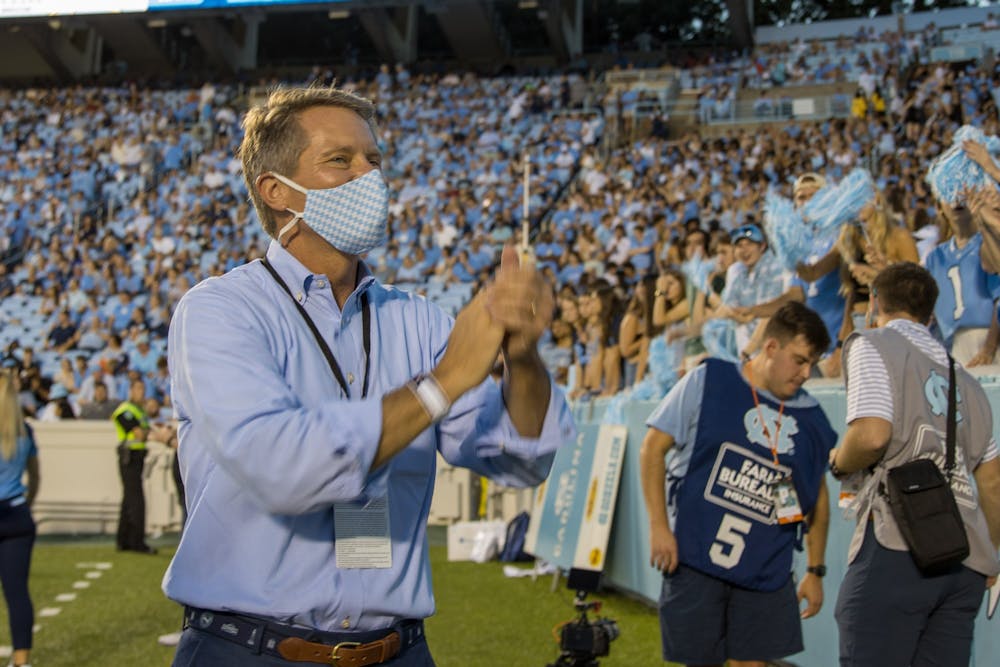As 2021 comes to a close, Editor-in-Chief Praveena Somasundaram spoke with Chancellor Kevin Guskiewicz about his reflections on the past year, concerns surrounding mental health and the University's shared governance, as well as what to expect for next semester.
This interview has been edited for brevity and clarity.
The Daily Tar Heel: Reflecting on the past year as chancellor, what are some of the lessons you’re taking with you into the next semester?
Kevin Guskiewicz: When we last spoke, I said that I was cautiously optimistic. I felt we had a really good plan in place and I think our communities met this year with resilience, perseverance, commitment to each other. I'm glad to see that our community is built on a legacy of service to each other. We talk often about the importance of our mission, research and service, and I think I'm most proud of how the community came together to support each other. I had the opportunity to visit classes and I heard from both students and faculty about how important it was to be back in the classroom together.
In terms of looking back, I spoke with you earlier about our Carolina Across 100 initiative, working with communities across our state to find ways of channeling our research insights for their benefit and helping to mitigate the impacts of challenges such as COVID. I think that's one example of our perseverance and staying true to what we said we would do this year. We just announced three Rhodes Scholars winners, a new record for Carolina — to have three in one year. I think it just speaks to the talent that we have here at Carolina — incredible students and world class faculty, and that's why we were again ranked number five among public universities for the 21st consecutive year.
DTH: What are some of the biggest challenges you’ve faced over the past year?
KG: We know the pandemic has taken a toll on our mental health. And during the fall semester, the current mental health crisis facing our nation hit home with the tragic deaths of students on our campus. I'm grateful for the compassionate campus community that surrounds us. We have staff who worked tirelessly to help students who asked for help navigating the challenges. Faculty were incredible in stepping up as I met with groups of students who talked about their faculty providing the flexibility that was necessary.
We had some important conversations during the Mental Health Summit that we held a few weeks ago, and it's one of several things that we did as a community to address the crisis. And I think that summit focused on three topics which we're continuing to work on, and there will be a number of initiatives that will result from this.
DTH: Mental health has continued to be a big topic of conversation, especially this semester. What is your plan to help address mental health concerns further going into next semester?




